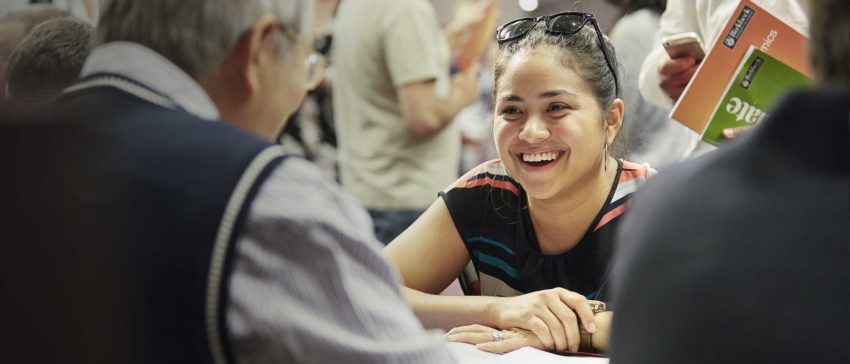Opis tego kierunku w języku polskim znajdziesz tu>>
https://studiawanglii.pl/courses/psychologia-kliniczna-dziecka/
COURSE OVERVIEW
Work towards a clinical career with children, or take the next step towards a doctorate. Gain an advanced academic understanding of developmental disorders and childhood mental health; and investigate causes, assessment, classification and treatment.
Our course provides you with a strong foundation for research and will complement your professional clinical training. You’ll gain a comprehensive theoretical knowledge of the field, as well as the practical ability to design and evaluate clinical research programmes.
Specialist modules focus on diagnosis and treatment of different conditions, developmental psychopathology (including causes and impacts) and the broader issues surrounding psychological research.
You’ll also train in quantitative and qualitative research methods, including infant observation, assessment and diagnostic interviewing, neuroimaging (electroencephalography and magnetoencephalography) as well as neuropsychological assessment. This leads up to your dissertation project, which will involve significant independent research with the guidance and support of our expert staff.
Please note that this course does not include clinical work with children, patients or mental health service users. This course does not constitute professional training, though it can support entry to a Doctorate in Clinical Psychology (or equivalent). We encourage you to seek out relevant paid or voluntary experience while completing your studies; our course is designed to facilitate this.
CAREER
Our course is ideal if you want to pursue a career working in a clinical setting with children. You’ll be highly employable in many research environments. You’re also in the perfect position to continue your academic career and move up to our Psychology PhD.
MODULES & ASSESSMENT
-
Issues in Scientific Research
This module is designed to help introduce you to the theoretical and practical complexities of the research process. The module will cover both qualitative and quantitative techniques, and it is aimed as a series of taster sessions. If you feel any of the techniques suits your research, your supervisor, and expert members of staff, will help you learn more about your chosen technique. Research training in the form of literature searching, constructing literature reviews, communicating and publicising your work will also be covered. Additional areas to be covered in this module include: The research process, research techniques, research ethics and scientific writing skills. This module is delivered face-to-face over 24h of lectures (2h per week) and requires 264h of student managed learning (11 hours for workshop preparation, 75h for reading and writing essays and 78 h for writing the portfolio) totalling 288h hours of learning activities. -
Diagnosis and Treatment in Clinical Child Psychology
In this module, you will be given an overview of the diagnosis of different developmental psychopathologies, looking at the different classifications systems. You will gain knowledge about methods of diagnosis, including infant observation, psychological assessment and diagnostic interviewing. -
Developmental Psychopathology
Explore the developmental cause, risk factors and implications to everyday life in children with both developmental disorders and child-related mental health problems. Within developmental disorders, the topics covered will include normative development, autism and pervasive developmental disorders and language and communication disorders. Within child mental ill health the topics covered will include affective disorders, eating disorders and substance abuse, and childhood trauma. -
Quantitative Research Methods
Develop a critical understanding of the principles of data collection and analysis for psychology and consider the theoretical basis of advanced quantitative methods. You will analyse example data sets using general linear models such as ANOVA, MANOVA, ANCOVA, multiple linear regression, and factor analysis. You will learn about good reporting practices and will learn how to report and interpret complex results. These chosen statistical methods have been directed by the Economic and Social Research Council’s Postgraduate Training Guidelines (fourth and fifth editions). -
Masters Project
You’ll chose an independent research topic from an area of expertise within our department (subject to availability of suitable supervision) and will conduct a significant research project in that area which may involve a literature review, data collection, analysis and a write-up. The final piece of work should be equivalent to a maximum of 12,000 words.




















